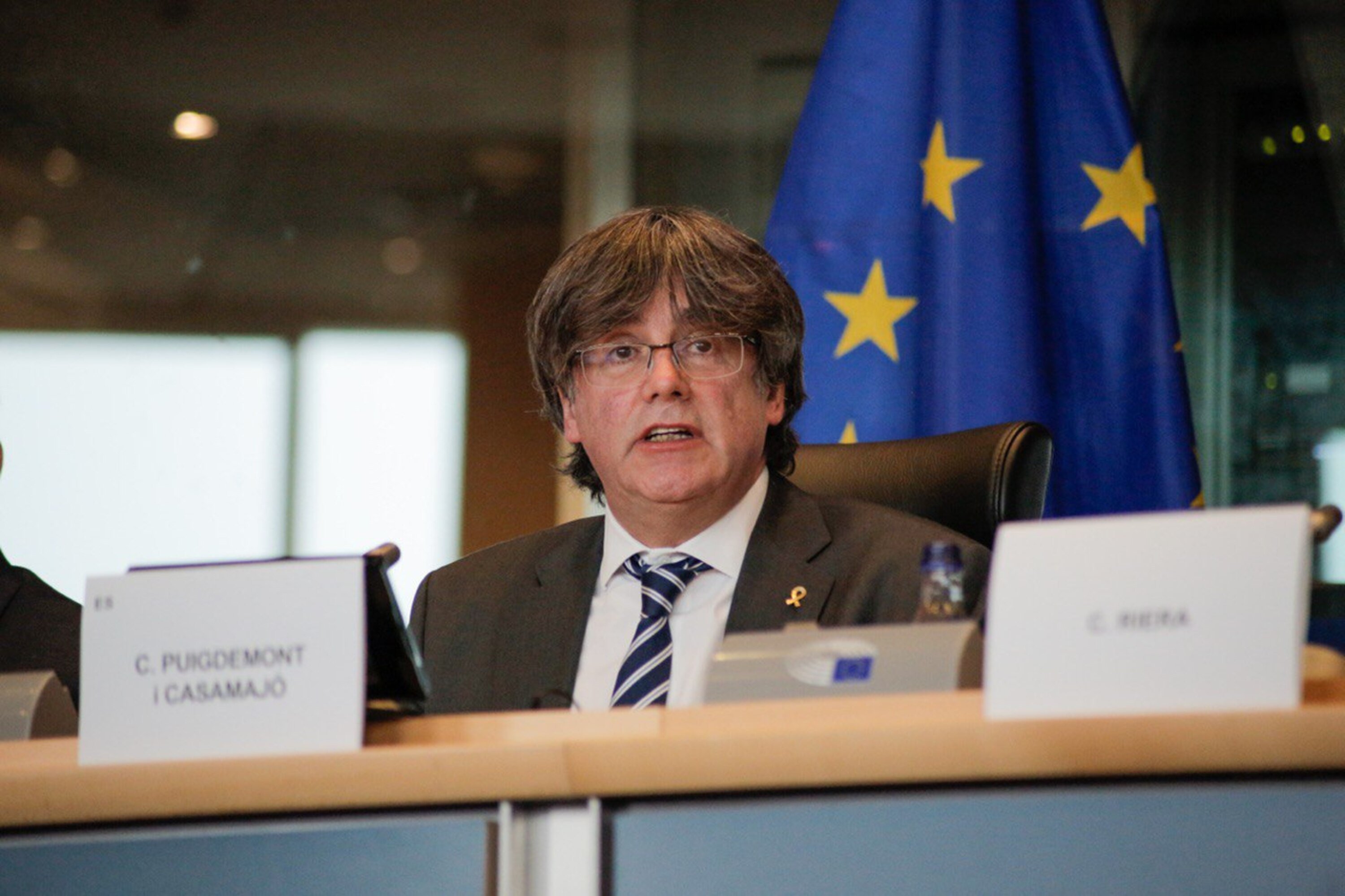Political consequences. That was a key phrase used by president Carles Puigdemont at this Tuesday's joint press conference by leading Catalan independence movement figures at the European Parliament, to directly point the finger at the Spanish state as holding most of the responsibility for the massive cyberespionage that came to light yesterday, reported in a New Yorker article and a study by the Citizen Lab research centre. The press conference, which was attended by Oriol Junqueras, Carles Riera, Elisenda Paluzie and Xavier Antich, raised great expectation on how the independence movement would react to the CatalanGate issue, with the press room full of Catalan and international journalists. All this helped give Puigdemont a scenario to be severely critical of the Spanish government, whom he accused of being behind the espionage.
"The Spanish government can't pretend that nothing has happened, and that everything can carry on as before," he warned. He recalled that the information revealed that the independence movement had been spied on for almost a decade, coinciding precisely with the period in which the movement was at its strongest. “That changes things,” he said. "We must orient our actions in the light of this new reality," he said, adding that political espionage perpetrated by the central government had "political consequences".
In addition, the president also stressed that relations with the Spanish executive, which were already complicated, have been further aggravated. "It's not the same having a government you can trust as having one that can spy on you," he said. The Junts leader criticized the PSOE for saying that it is defending dialogue with Catalonia when, at the same time, it has been participating in a great "criminal plot" against the independence movement. He also referred to the negotiations with the Spanish state, a strategy advocated by ERC leader Oriol Junqueras. In this regard, he warned that dialogue does not exist, and that, on the other hand, what there is, is a "massive violation" of the rights of many Catalans. Thus, he demanded that the independence movement stop giving its support to the Spanish government, in a clear allusion to the position of ERC.
Junqueras sees it differently
"Negotiation is a flag which we don't want to give away to those who don't deserve it. The Spanish government does not deserve it, and we do not intend to give it away in any case," said the Catalan Republican Left (ERC) president. However, he was clear in the thrust of his message: ERC wants to maintain the dialogue not so much because it believes that the state will end up giving in, but because it serves to strengthen the independence movement on an international scale. "Many look at us and believe that negotiation is a useful tool. The more we use it, the more we will empower ourselves when we stand before the state," he said. He also asked rhetorical questions: "When we get the Spanish state to sit at the negotiating table, and at the same time it becomes public that we are being spied on, who accumulates political capital? Undoubtedly, the Catalan independence movement, in the eyes of the international community".
Nor did Junqueras miss the opportunity to show his rejection of the Spanish government, asserting that ERC only supports those measures in the Congress of Deputies "that are good", and "does not give [blanket] support to any political party in any chamber". "We have the strength we have, and we will use it as we always use it, and we are strict on this issue," he warned. He even threw a dart directly at the Socialists, warning that "there is no political project more opposed to that of the Republican Left than that of the PSOE." That is how he defended the need for ERC to remain cautious about the PSC - the Catalan Socialists - entering the Catalan institutions.

